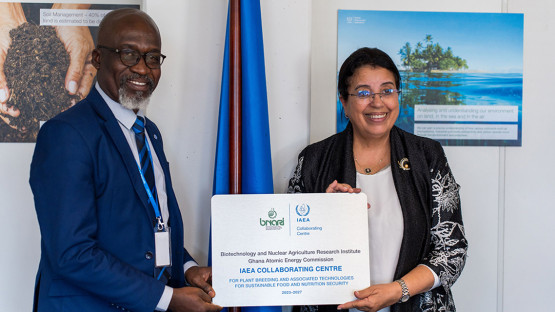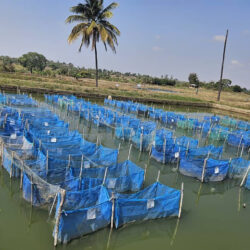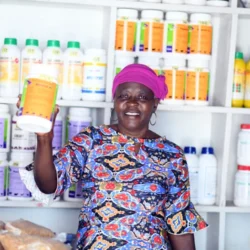Innovative plant breeding programmes using safe and proven nuclear techniques are vital for enhancing food security and sustainable agriculture.
For nearly 60 years, the Joint FAO/IAEA Centre of Nuclear Techniques in Food and Agriculture and its Plant Breeding and Genetics Laboratory in Seibersdorf, Austria, have been using gamma rays and X-rays to irradiate seeds and plant tissues to speed up the natural evolution process of gene mutation in plants. This technique generates genetic diversity for breeding new and improved crop varieties. Radiation-induced mutation produces millions of variants. There is no residual radiation left in a plant afterward. Breeders then screen for the desired traits and crossbreed.
To promote research and development on mutation breeding in West and sub-Saharan Africa, the IAEA has designated the Biotechnology and Nuclear Agriculture Research Institute (BNARI) of the Ghana Atomic Energy Commission as an IAEA Collaborating Centre in plant breeding and associated technologies for food and nutrition security for a period of four years. A signing and plaque award ceremony took place on 22 September at the IAEA headquarters in Vienna, Austria, in the margins of the 67th annual General Conference.
“Mutation breeding is an important tool to help us meet the challenge of feeding our planet,” said Najat Mokhtar, IAEA Deputy Director General and Head of the Department of Nuclear Sciences and Applications. “It enables us to develop food crops with increased yields, better nutritional quality and greater resilience to the impacts of climate change. By working together more closely with BNARI, we can share expertise and develop capacities for using this safe and highly effective technique across a wider region.”
BNARI is Africa’s first IAEA Collaborating Centre in the field of plant breeding and genetics, and one of only six worldwide. Due to its geographical location and expertise using radiation-induced mutation, BNARI is well placed to strengthen West African capacities in plant breeding and genetics.
“We are resolutely committed to leveraging this partnership to advocate for the widespread adoption of mutation breeding and associated technologies to fortify food and nutrition security throughout Africa,” said Michael Osae, Director of BNARI.
BNARI’s designation as an IAEA Collaborating Centre follows many years of working together on both coordinated research projects and national and regional technical cooperation projects, which contributed to building the capacities necessary to become a Collaborating Centre. In the last four years, BNARI has both hosted and provided experts for IAEA-organized training courses and received fellows from other African countries and Jamaica.
The Collaborating Centre will facilitate the exchange of knowledge, not only between Ghana and the IAEA but also among African countries and with similar Collaborating Centres worldwide.
“Today marks yet another significant milestone in the enduring partnership between Ghana and the IAEA,” said Samuel Boakye Dampare, Director General of the Ghana Atomic Energy Commission, after signing the agreement. “Ghana has been steadfast in its collaboration with the IAEA, harnessing the power of nuclear and biotechnological solutions to benefit not only our nation but also the broader African community.”
Under the agreed workplan, BNARI will share capabilities and expertise on in vitro multiplication, perform collaborative research on tissue culture and mutation breeding, and provide irradiation services to other countries in the region.
As its first activity as an IAEA Collaborating Centre, BNARI will host a regional training course, Molecular Marker Technologies for Identification of Mutations.




